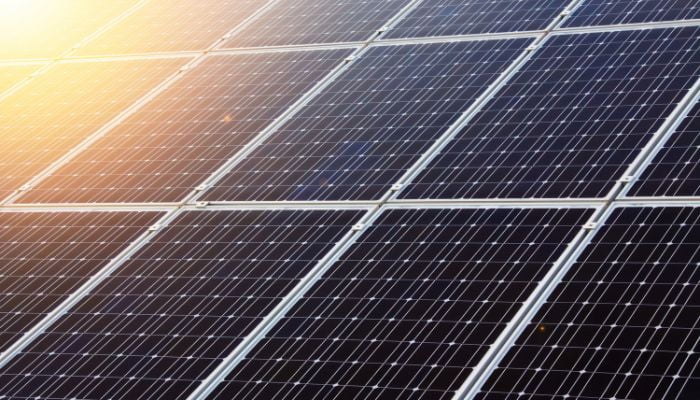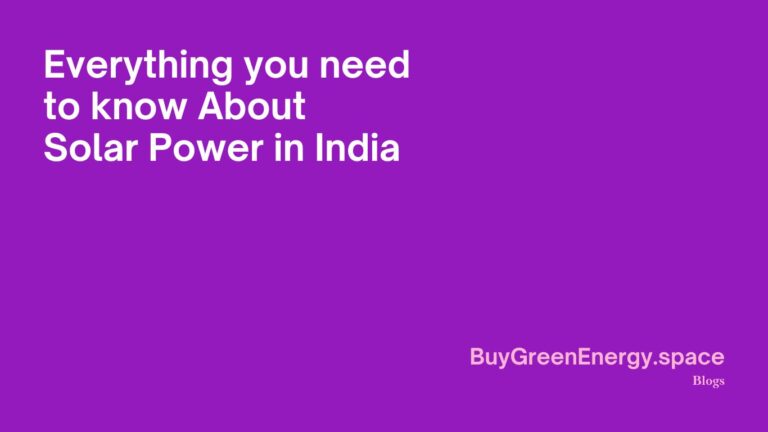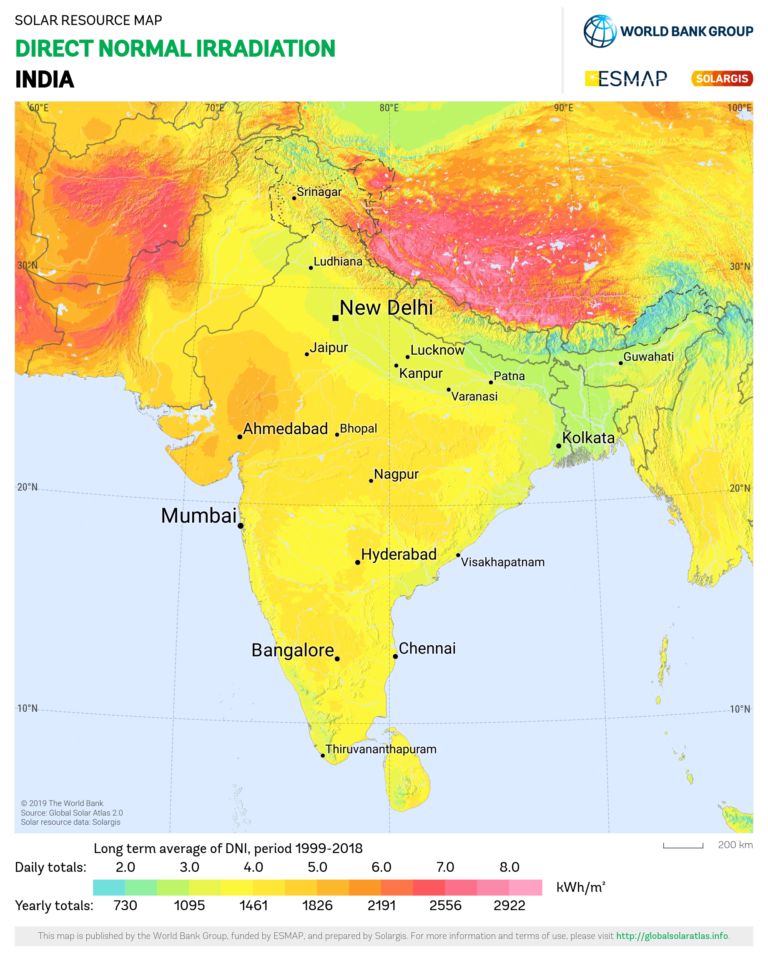
What are String Inverters and its applications ?
String inverters are a key component in solar photovoltaic (PV) systems, playing a crucial role in converting the direct current (DC) electricity generated by solar panels into alternating current (AC) electricity that can be used in homes, businesses, or fed into the electrical grid. The term \”string\” inverter comes from the way solar panels are connected in a series, or \”string,\” to these inverters.
In a typical setup, multiple solar panels are linked together in a series to form a string. The electricity produced by this string of panels flows to the string inverter, where it undergoes the conversion from DC to AC. One of the main advantages of string inverters is their simplicity and cost-effectiveness, especially in smaller or medium-sized solar installations. They are relatively easy to install and maintain, making them a popular choice for residential solar systems.
String inverters are also flexible in terms of system design. They can accommodate different solar panel configurations, which is particularly useful in installations where panels are mounted on multiple roof surfaces with varying orientations or angles. This flexibility allows for optimal use of available space and maximizes solar energy production.
However, one of the limitations of string inverters is that the entire string\’s performance can be affected by shading or obstructions on just one panel. This is because the current in a string is determined by the least performing panel. To mitigate this, some string inverters are equipped with power optimizers, which are attached to each panel to maximize the output of individual panels before sending the power to the inverter.
Application of Solar String inverters in India
- Residential Solar Installations
- Industrial Solar Rooftop Projects
- Commercial Solar Projects
- Community Solar Gardens
- Agricultural Solar Applications
- Schools and Educational Institutions
- Government and Municipal Buildings
- Remote and Off-Grid Applications
Advantages of String Inverters
- Flexibility in Design: String inverters allow for more flexibility in system design. You can orient solar panels in multiple directions, which is ideal for roofs with varying angles or partial shading.
- Scalability: They are well-suited for small to medium-sized installations. You can easily add more panels and an additional string inverter as needed.
- Easier Troubleshooting: Since each string inverter handles a smaller number of panels, identifying and fixing issues is generally simpler.
- Lower Initial Cost: For smaller systems, string inverters typically have a lower upfront cost compared to central inverters.
Disadvantages of String Inverters
- Limited by the Weakest Panel: In a string, the performance is dictated by the weakest panel. If one panel is shaded or underperforming, the entire string\’s output is reduced.
- More Components: In larger installations, you might need multiple string inverters, which can complicate the setup.
- Shorter Lifespan: String inverters generally have a shorter lifespan than central inverters.
Advantages of Central Inverters
- High Capacity: Central inverters are ideal for large-scale installations due to their high capacity and efficiency in handling significant power loads.
- Longevity: They typically have a longer lifespan and are more robust compared to string inverters.
- Cost-Effective for Large Installations: For large solar farms or commercial setups, the cost per watt is often lower with central inverters.
- Simplified System Design: Having a single central inverter can simplify the overall design and maintenance of a large solar system.
Disadvantages of Central Inverters
- Less Flexibility: Central inverters are less adaptable to varied panel orientations or partial shading conditions.
- Complex and Costly Maintenance: If a central inverter fails, it can affect the entire system, and maintenance or replacement can be complex and costly.
- Higher Initial Investment: For smaller installations, the cost of a central inverter can be prohibitively high.
Disclaimer: The below list does not signify any rankings, rather just gives you an indication of some of the companies operating in this space. The Reader shall get in touch with the companies directly to understand the quality and capabilities of the companies before any purchase.
Top Solar String inverter Companies in India
SMA Solar Technology:
SMA is renowned globally for its high-quality inverters. Their string inverters are known for efficiency, durability, and are suitable for both residential and commercial installations.
Fronius:
Fronius inverters are popular for their innovative technology and reliability. They offer a range of string inverters that are efficient and easy to install, making them a favorite in the Indian market.
Huawei:
Huawei\’s solar inverters are known for their smart energy management, high efficiency, and reliability. They offer a range of string inverters that are well-suited for Indian climatic conditions.
Delta Electronics:
Delta offers a range of string inverters that are highly efficient and durable. Their inverters are designed to withstand India\’s varied environmental conditions, making them a reliable choice.
ABB (now FIMER):
ABB’s solar inverter division was acquired by FIMER, and they continue to offer high-quality and efficient string inverters, known for their robust performance in residential, commercial, and industrial solar installations.
Sungrow:
Sungrow is one of the world\’s largest inverter manufacturers. Their string inverters are known for high efficiency, reliability, and are widely used in various solar projects across India.
Solaredge:
Solaredge offers innovative string inverters with a unique DC optimized inverter technology that improves energy output and offers advanced monitoring and control features.
Victron Energy:
Known for their quality and durability, Victron Energy’s string inverters are a popular choice for off-grid and hybrid solar systems in India.
Enphase Energy:
Enphase offers microinverters, but their technology and approach to solar energy conversion make them a noteworthy mention. They are ideal for residential solar systems and are gaining popularity in India.
KACO New Energy:
A German manufacturer known for high-quality solar inverters, KACO offers efficient and reliable string inverters suitable for both residential and commercial solar installations in India.
Schneider Electric:
Schneider Electric provides a range of solar inverters, including string inverters known for their robustness and adaptability to various solar applications, making them a solid choice for Indian conditions.
Ginlong Solis:
Solis inverters by Ginlong Technologies are recognized for their affordability and efficiency. They offer a range of string inverters that are becoming increasingly popular in the Indian solar market.
Growatt:
Growatt offers cost-effective and efficient string inverters, which are well-suited for small to medium-sized solar installations in India. They are known for their user-friendly interface and reliable performance.
TMEIC (Toshiba Mitsubishi-Electric Industrial Systems Corporation):
TMEIC’s string inverters are known for their high efficiency and durability, making them suitable for India\’s diverse and challenging environmental conditions.
Refusol (Now part of Advanced Energy):
Refusol, acquired by Advanced Energy, has a range of string inverters that are known for their high efficiency and reliability, catering well to the Indian solar market.
Hitachi Hi-Rel Power Electronics:
Hitachi offers string inverters that are designed to be robust and efficient, suitable for both residential and commercial solar projects in India.
Havells India:
A well-known brand in India, Havells offers solar string inverters that are gaining popularity due to their reliability and the strong service network of Havells in India.
Microtek:
Known primarily for their UPS systems, Microtek has ventured into solar inverters, including string inverters, which are designed for efficiency and reliability in Indian conditions.
Luminous Power Technologies:
Luminous is another brand that, while famous for its UPS systems, has also made a mark in the solar inverter market, offering string inverters that are efficient and reliable for Indian consumers.
FAQs about Solar String Inverters in India
- What is a solar string inverter and how does it work?
- A solar string inverter is a device that converts the direct current (DC) generated by solar panels into alternating current (AC) for use in homes or businesses. It connects to a series (string) of solar panels. The inverter ensures that the electricity produced is compatible with the grid and can be used by electrical appliances.
- How long does a solar string inverter last?
- The typical lifespan of a solar string inverter is around 10 to 15 years. This is generally shorter than the lifespan of solar panels, so you might need to replace the inverter at least once during the lifetime of your solar energy system.
- Are solar string inverters safe?
- Yes, when installed and maintained correctly, solar string inverters are safe. They are equipped with various safety features like anti-islanding protection and automatic shutdown in case of a fault. However, proper installation by a certified professional is crucial for safety.
- What size of solar string inverter do I need for my system?
- The size of the inverter should generally match the peak power output of your solar panels. It\’s often recommended to get an inverter that can handle a little more than your current output to accommodate future expansion.
- Can solar string inverters operate independently from the grid?
- Standard solar string inverters require a grid connection to operate. However, some models come with a battery backup or hybrid functionality that allows for off-grid operation during power outages.
- What maintenance do solar string inverters require?
- Solar string inverters require minimal maintenance. Regularly checking for dust and debris, ensuring proper ventilation, and monitoring the inverter’s performance are usually sufficient.
- How efficient are solar string inverters?
- The efficiency of solar string inverters typically ranges between 95% to 98%. This means they convert most of the DC power from the solar panels into usable AC power with minimal loss.
- Can I upgrade my solar string inverter?
- Yes, you can upgrade your solar string inverter. Upgrading can be beneficial for improved efficiency, advanced features, or to accommodate an expanded solar panel system.
- How do solar string inverters handle extreme weather conditions?
- Most solar string inverters are designed to withstand a range of environmental conditions. However, extreme temperatures can affect their efficiency and lifespan. It’s important to install them in a location that minimizes exposure to harsh weather.
- What is the difference between a solar string inverter and a microinverter?
- A solar string inverter connects to a string of multiple solar panels, converting their combined DC output to AC. A microinverter, on the other hand, is attached to each solar panel, converting DC to AC at the panel level. Microinverters are more efficient in shaded conditions and allow for monitoring of individual panels.


